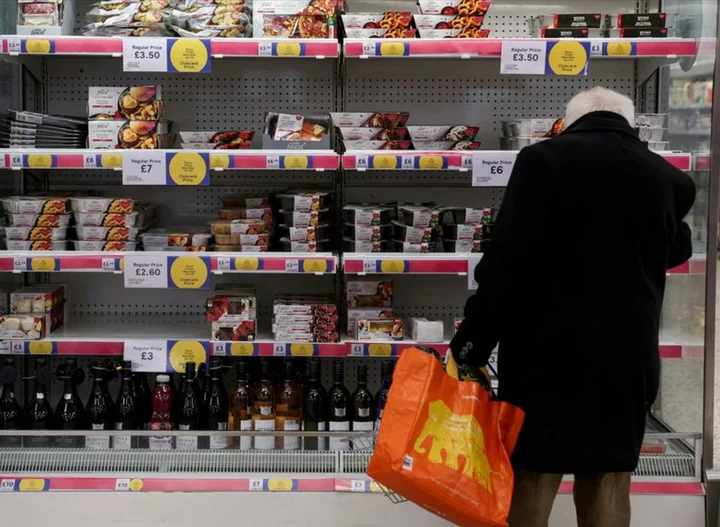LONDON Food price inflation in Britain will decline through the balance of 2023 but will still be about 9% in December, a prominent grocery industry researcher said on Thursday.
In its latest report, the Institute of Grocery Distribution (IGD), whose forecasts on UK food inflation have proved to be broadly accurate, cautioned it did not expect sales on a volume basis to significantly recover until next year.
“We predict that food price inflation will slowly and steadily decline over the remainder of 2023, reaching approximately 9% by December," James Walton, IGD's chief economist, said.
"Although food price inflation appears to have peaked in March, widespread price cuts are unlikely at this time and a depressed volume of sales is expected until March 2024.”
Prime Minister Rishi Sunak's pledge to halve overall inflation in 2023, before a probable 2024 election, is under threat from persistently high food inflation, which has added to strain on household budgets already hit by interest rate rises.
In May, the Bank of England forecast overall inflation would drop to just over 5% by the end of this year and below its 2% target by early 2025, but some BoE policymakers have doubts about the models used to make these forecasts and fear inflation will be higher.
Food and drink inflation was 18.3% in May according to the most recent official data, and 14.6% in June according to the most recent industry data.
All of Britain's major grocers have recently cut the prices of some staple products, such as milk, butter and bread.
However, both market leader Tesco and No. 2 Sainsbury's have cautioned that a permanent rise in labour costs will mitigate the easing of commodity and energy pressures.
The IGD's Walton also highlighted a shortage of labour in the UK food and consumer goods industry.
“Labour pressures may be the industry’s Achilles’ heel, driving costs while undermining capacity," he said.
The IGD report also highlighted increased pressure on those with the lowest incomes, with 54% reducing the amount of food and drink consumed at home compared to 36% with higher incomes.
EXPLAINER-Why is UK food inflation so stubbornly high?
(Reporting by James Davey, Editing by William Maclean)

